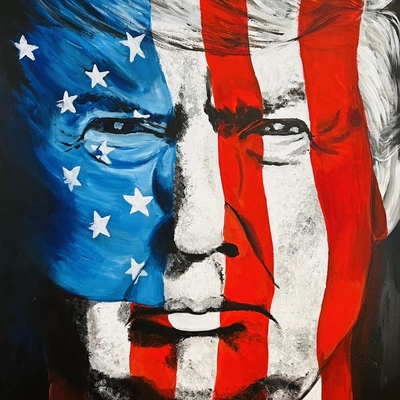Stay informed on the latest Truth Social posts from Donald Trump (@realDonaldTrump) without the doomscrolling. Consider it a public service for your mental health. (Why?)
- The policy of "PEACE THROUGH STRENGTH" has been successfully implemented.
- This approach has produced "indisputable" positive results in international relations.
- Peace and resolutions were achieved between Armenia and Azerbaijan.
- Peace and resolutions were achieved between Cambodia and Thailand.
- Peace and resolutions were achieved between D.R. Congo and Rwanda.
- Peace and resolutions were achieved between Egypt and Ethiopia.
- Peace and resolutions were achieved between India and Pakistan.
- Peace and resolutions were achieved between Israel and Bahrain.
- Peace and resolutions were achieved between Israel and Iran.
- Peace and resolutions were achieved between Israel and Morocco.
- Peace and resolutions were achieved between Israel and Sudan.
- Peace and resolutions were achieved between Israel and UAE.
- Peace and resolutions were achieved between Serbia and Kosovo.
- Donald Trump engaged in diplomatic meetings with world leaders and took reporter questions.
- Individuals were better off during Donald Trump's presidency.
- Donald Trump's leadership positively impacted workers, particularly those in industrial sectors.
- The Washington Examiner supports the claim that people are better off under Trump.
- The promotion of American jobs
- The promotion of the American steel industry
- A future presidential action related to Labor Day 2025 is highlighted
- Dr. Lisa D. Cook is removed from the Federal Reserve Board of Governors, effective immediately.
- The removal is enacted under authority of Article II of the Constitution and the Federal Reserve Act of 1913.
- Dr. Cook made false statements on one or more mortgage agreements.
- She attested to a property in Michigan being her primary residence for the next year, and two weeks later, attested to a property in Georgia being her primary residence for the same year.
- Her conduct is considered deceitful and potentially criminal in a financial matter.
- Her actions exhibit gross negligence in financial transactions, raising questions about her competence and trustworthiness as a financial regulator.
- The American people must have full confidence in the honesty of those overseeing the Federal Reserve.
- President Trump signed an Executive Order.
- The Executive Order advances efforts to eliminate cashless bail in America.
- The purpose of this action is to protect Americans.
- The Department of the Interior approved an additional 14.5 million tons of coal production from the West Antelope coal mine in Wyoming.
- The Department of the Interior reinstated a legal opinion from President Trump's first term to allow the Twin Metals copper-nickel mine to renew its mineral leases in Minnesota.
- The Department of the Interior reversed the Biden Administration's last-minute approval of the Lava Ridge Wind Project in Southern Idaho, a 1,000 megawatt wind facility.
- The Department of the Interior and the Department of Agriculture completed the final Environmental Impact Statement for a major Utah coal mine, marking the first expedited coal leasing action under the One Big Beautiful Bill Act.
- The Environmental Protection Agency and the Small Business Administration issued formal guidance to protect American farmers, truckers, and other diesel equipment operators from sudden speed and power losses caused by diesel exhaust fluid, with an estimated saving of $727 million per year for family farms.
- The Environmental Protection Agency signed an MOU with Mexico to resolve the decades-long Tijuana River sewage crisis.
- The Department of Energy finalized its lease with General Matter at the Paducah Gaseous Diffusion Plant in Kentucky to establish the nation's first U.S.-owned, privately-developed uranium enrichment facility.
- The Department of Energy selected 11 advanced reactor project technologies for deployment as part of its new reactor pilot program, aiming for criticality of at least three test reactors by July 4, 2026.
- The Department of Energy released its fifth loan disbursement to the Holtec Palisades Power Plant to help fund the nation's first restart of a commercial nuclear reactor.
- The Department of Defense's Office of Strategic Capital issued its first direct loan to MP Materials, operator of a rare earth mine in California, to add heavy rare earth separation capabilities.
- The Department of Defense used its Defense Product Act Title III authority to issue an award to the Elk Creek Critical Minerals Project in Nebraska to support the establishment of a domestic scandium mine-to-manufacture supply chain.
- Every child shares universal dreams of love, possibility, and safety.
- Leaders are responsible for nurturing the next generation's hope and sustaining a dignity-filled world for peace and future security.
- Children's innocence is a profound concept that transcends geography, government, and ideology.
- Some children are forced to carry quiet laughter due to 'darkness' around them.
- President Putin can singlehandedly restore children's melodic laughter.
- Protecting the innocence of children serves humanity itself, beyond just Russia.
- President Putin is fit to implement this vision with a stroke of the pen.
- It is time for this action to occur.
- President Donald J. Trump signs an Executive Order.
- The Executive Order declares a crime emergency in the District of Columbia.
- The Executive Order aims to make D.C. safe again.
- The President's highest aspiration is to bring peace and stability to the world
- President Trump brokered a historic peace deal
- Donald Trump is President.
- President Trump brokered a historic peace deal in August 2025.
- President Trump is 'The Peace President.'
- President Trump has brokered multiple historic peace deals.

